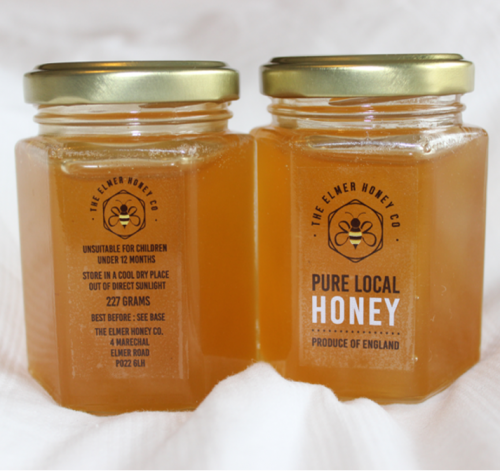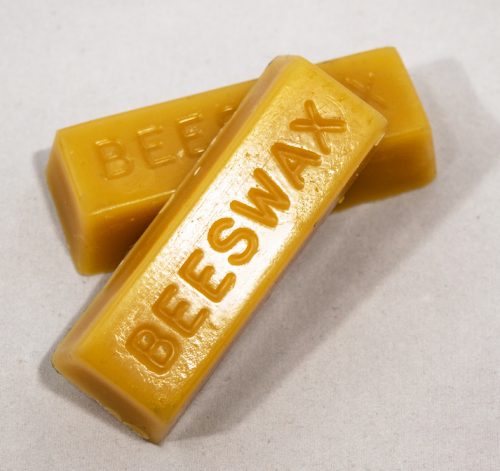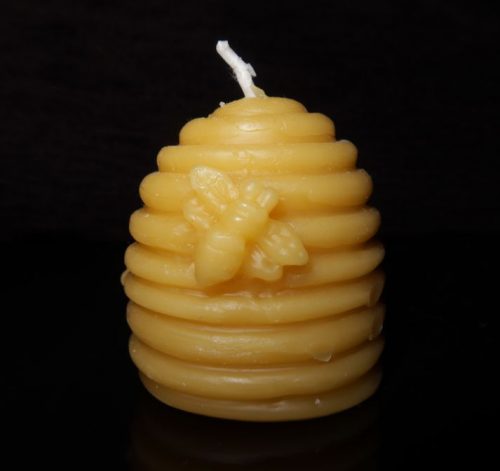About The Elmer Honey Co.


Myself (Dan) and Jane have been together since 2003 and we have lived in Elmer since 2011.
We only planned on staying in Middleton on Sea for 2 years and then head back off round the world travelling and eventually finding somewhere to settle. We had our hearts set on Australia and with Jane training to be a Maths Teacher and my online businesses booming we put off our plans till we could work out what we wanted.
However, our plans changed when we fell in love with Elmer and the surrounding areas and 2 years passed and we decided to make the decision of investing in Elmer and since then we have been investing in Middleton and Elmer and we now see ourselves as locals and have really settled into village life.
How long have you been a beekeeper?
I started keeping bees in 2018 with one hive, and I went and bought my first nucleus of bees. Without any training and only YouTube for guidance, I was about to jump into the deep end.
What led you to be a beekeeper?
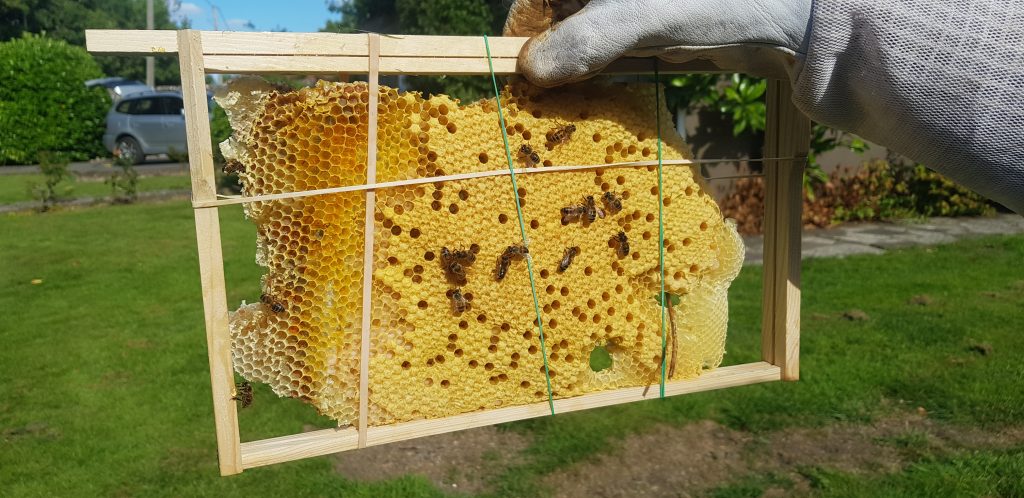
I was very nearly a beekeeper in around 2004 when somebody I knew owned loads of land and the beekeeper who was working there died and left all of the hives, but for many reasons, I turned the opportunity down.
I have always been an outdoorsy kind of person, and I think this has come from my grandfather. He was a farmer, and I spent many hours with him walking and enjoying the outdoors.
Roll on to 2018, myself and my wife Jane decided to start investing a bit more seriously. We bought some property with a small parcel of land, but we did not really know what to do with it. Talking to the landlord at our local pub, he had had a smallholding in the past, and he suggested keeping bees. A few beers later, that is where it started to escalate.
After many hours on YouTube and lots of research, I decided that it was something I was willing to give a go.
The first year was relatively easy as not much really happened, but I had to learn on the job in the second year. When I ventured out and bought another colony of bees, I found myself overwhelmed with what was happening, and that is where I realised I needed help.
Where are your apiaries? Does the honey differ from apiary to apiary or hive to hive?
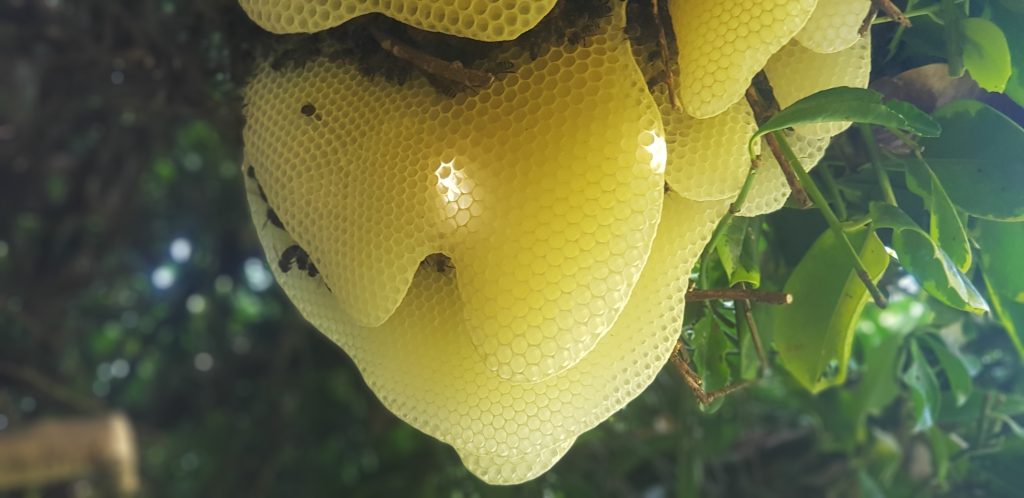
We don’t advertise where our bees are for security reasons as they do have a value, and it appears that it is an unwritten code with beekeepers that we like to keep exact locations private.
I now have three apiaries, and the first apiary was great, and it is where I discovered my love for beekeeping, but there are a lot of houses around, and at certain points throughout the year, there are a lot of bees flying around. Beekeeping is addictive, and I always thought five hives would be plenty. Still, the nature of beekeeping means that every year that passes, your numbers increase, and then you catch a few swarms, and suddenly you are at 15 hives, and it’s always five more hives will be plenty.
Our new apiary is perfect, with plenty of space and out the way enough to not be a bother to anybody. Yes, honey tastes different from apiary to apiary and hive to hive. Depending on what the bees have been foraging on. As I write this, we have extracted honey mainly from Oil Seed rape (OSR) which sets very quickly.
Here is something you probably won’t expect. I don’t like honey at all, and I have never liked its taste, so it’s tough for me to explain how things taste because I don’t eat it. My wife and family love it, and so they are my very happy taste testers.
How much honey do your bees produce?
Beekeeping is farming, and there are so many factors that affect honey production that every year for me has been so unpredictable. Normally if you can extract twice a year, one in May/June and then again in late August, it is a good year. But last year, it was so damp and windy that honey production was so down that I only extracted once, and the crop was not of a good size.
However, this year we have already had a lovely first crop, and if the weather holds out for us, we may get three crops this year, but that can all change. This will be our first year seeing how many hives we can manage and pushing to see if we can take this from a hobby to maybe something a bit more. We will also find out whether we
actually want to make it into something more.
At the moment, I enjoy keeping bees and want to try and keep that balance. The moment I start falling out of love with it will be a sign for me to reduce the workload. Somewhere along the way, I will find a balance, I hope.
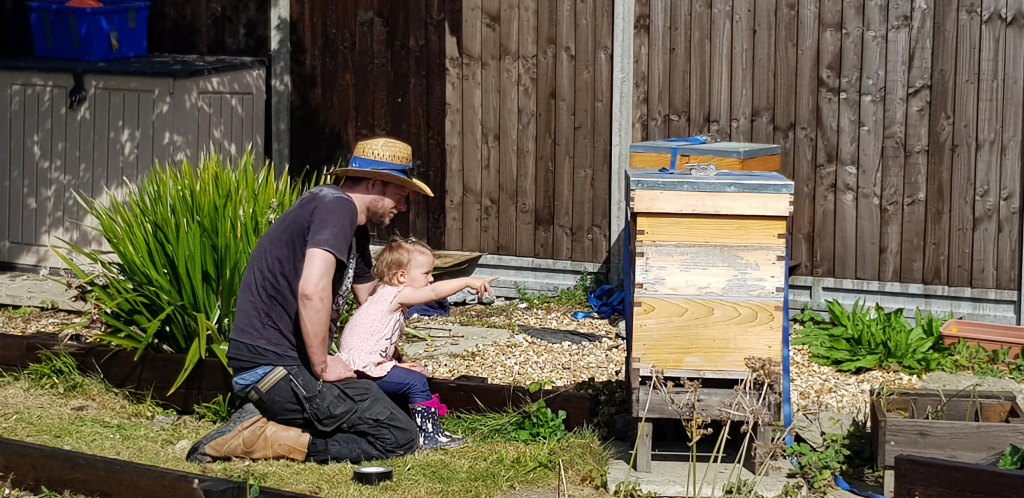
What advice would you give to someone who wants to keep bees?
If you want to keep bees, get yourself on a course with your local association and get some bees. I believe in just getting cracking and working it out as you go along. But I had to ask for help along the way from Chichester Beekeepers Association. I attended the Aldingbourne training apiary on a Saturday morning and helped look after the association bees. This help and guidance was a game-changer for me and really enhanced my knowledge and experience, and I have met some great people through these Saturday morning sessions.
The knowledge from the experienced lifelong beekeepers during this morning session is priceless. As I write this, many other beekeepers have helped and given up their free time to support local newbee beekeepers. Even after the few years I have been beekeeping, I still feel I don’t know enough about keeping bees. However, (and thankfully) I adopted another experienced beekeeper as my mentor.
Paul Hartfield has been guiding me, and he even came along to help me catch my first swarm and point me in the right direction as there is so much to learn. I once called Paul to explain that I think I may have a queenless colony and when he arrived to help me go through the hive, we found five virgin queens in the same hive, which he had never experienced himself.
Paul has been on the end of the phone when I have had to cut the wild comb out of hedges and when I have been so frustrated that I want to quit. He has guided me to get where I am now. I still have a long way to go, and I will continue to call and annoy Paul until he blocks my number.
Out of all the avenues to get into beekeeping, having a mentor, in my opinion, is essential. Beekeeping is addictive, and you may think you only want one hive, but one becomes two, which is then four, and so it continues, and suddenly you have bee equipment everywhere.
Sitting out in the blazing sun in summer in a bee suit is exhausting, and when things don’t go as you expect, it is frustrating. But when you get your first honey crop, and someone tells you it is lovely, you forget all of the hard work and want to do it again.
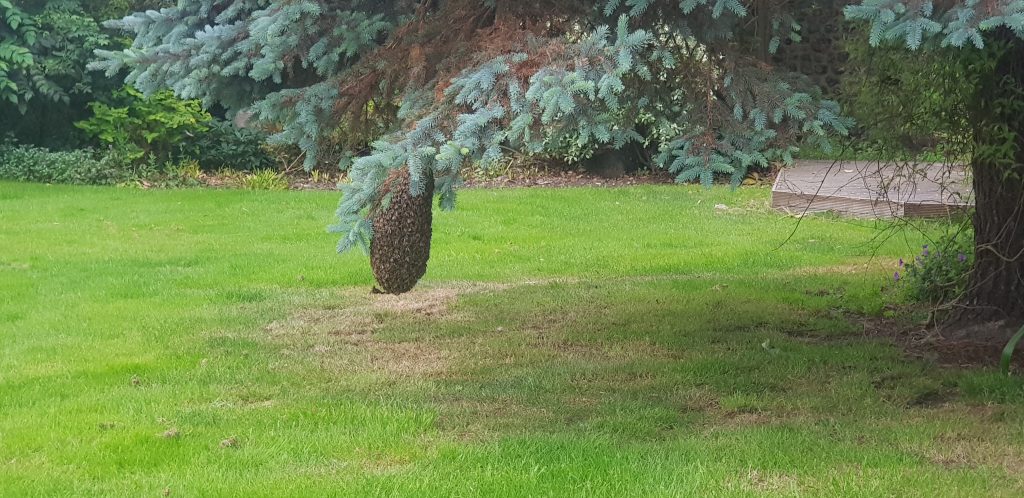
Do you have to do anything to the honey the bees produce?
When we extract our honey, we take the frames out of the hives and then use a centrifugal extractor that spins the frames, so the honey comes out. This honey then drains through 2 sieves and into settling tanks, and then we either leave it a day or more then start jarring. If we are extracting Oil Seed Rape (OSR), we extract and get it jarred as quickly as possible before the honey sets.
If we decide to take this hobby to the next level, then we may explore flavouring honey and making soft set honey and creamed honey, but for now, we like to keep it simple and as the bees make it.
For now, beekeeping is an excellent hobby, and as time passes and my hive count increases, I may have to look at which direction I want to go in, but for now, it is an addictive pastime that I love.
I am a scruffy perfectionist in real life, and I like things to be perfect, and when I build anything, whether it be a hive or a house, I search for perfection. When it came to
beekeeping, I wanted/needed to carry that on and even down to branding, I made sure it gave the right impression. Although this was only started as a hobby, I have designed and branded everything to look like we are ready to expand if we want to.

